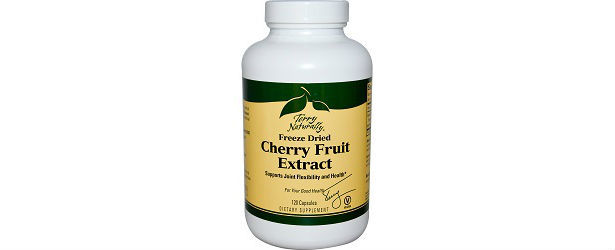
Gout Medicines
 There are numerous gout medicines on the market today and each has a specific role in managing gout symptoms. Because there are so many types, this article can help you understand what they do and possible side-effects. This way you can make an informed choice or even better understand ones you may already be using.
There are numerous gout medicines on the market today and each has a specific role in managing gout symptoms. Because there are so many types, this article can help you understand what they do and possible side-effects. This way you can make an informed choice or even better understand ones you may already be using.
Gout medicines each serve a specific purpose for treating gout. From reducing inflammation to lowering uric acid levels, it is important to understand how they work. Here is a list of commonly used gout medicines and what they do:
Non-Steroidal Anti-Inflammatory (NSAIDS) Gout Medicines
The role of NSAIDS is to reduce the inflammation in the body. Anti-inflammatory medications stop certain proteins and enzymes in the body from causing them to react as inflammation or bleeding. One commonly used NSAID aspirin, is contraindicated in gout because it can actually raise uric acid levels. Examples of NSAIDS used for gout include; ibuprofen or naproxen.
It is important to check with your doctor before using an NSAID medication because there can be adverse effects with other diseases such as; heart, liver or kidney disease. They can cause bleeding ulcers, low iron counts and other bleeding issues.
Colchicine
Colchicine is often prescribed for gout to stop the inflammation caused by uric acid crystals. This gout medicine does not lower uric acid levels, but helps stop the body from becoming inflamed because they are there. Colchicine can reduce the severity and frequency of gout flares and can either be taken for short periods at a high dose or longer periods at low doses.
There are side-effects including; liver complications, bone marrow complications, nausea, diarrhea, and kidney problems.
Corticosteroid Medications
 Corticosteroids are cautiously used to lower the inflammation in the body. They help in treatment for one single joint and are used as little as possible because of the large risk of side-effects. They are only considered as a gout medicine when other methods of treatment have failed such as; NSAIDS or colchicine.
Corticosteroids are cautiously used to lower the inflammation in the body. They help in treatment for one single joint and are used as little as possible because of the large risk of side-effects. They are only considered as a gout medicine when other methods of treatment have failed such as; NSAIDS or colchicine.
When more than one joint is affected, it is usually given via intravenous route in the hospital.
They are given in the lowest dose and shortest time possible for relief because they affect the adrenal glands and the body’s normal steroid production. Side-effects include; weight gain, fluid gain, moodiness, bone loss, poor wound healing, increased infection, acne, cataracts, increased blood pressure, and glaucoma.
Corticosteroids cannot be given for a long period of time because they have serious side effects, such as osteoporosis, mood swings, fluid retention, weight gain, and increased risk of infection, difficulty in wound healing, glaucoma, acne, cataracts, and high blood pressure. These are all good reasons to avoid steroid gout medicines if at all possible.
Uricosuric Agents
Uricosuric agents are gout medicines for actual uric acid removal. They stimulate the kidneys to filter out uric acid from the bloodstream. They can help to prevent gout flares in the future. The side-effects include; stomach issues, headaches, rash, and kidney issues.
Allopurinol
Allopurinol is one of the gout medicines that can be used on a long-term basis. This medication helps stop the production of, xanthine oxidase. Xanthine oxidase increases uric acid in the blood, so allopurinol used over long periods of time can help to lower how much uric acid your body produces. This medication also has side-effects including: liver inflammation, rash, and problems with the bone marrow.
Discuss gout medicines with your doctor to see which one will be a good fit. You should let your doctor know about your health history, medications, and if you experience any side-effects from the medications for gout to prevent serious complications.
TOP 5
GOUTTreatments |
|||||
| GoutClear | Goutezol | Flamasil | GR-911 | Uricinex | |
|---|---|---|---|---|---|
| 1 | 2 | 3 | 4 | 5 | |
| Price (1 bottle) Price (6 bottles) Best Value |
$49.95 $135.70 |
$59.95 $359.70 |
$42.95 $257.70 |
$39.95 $169.70 |
$29.95 $179.70 |
| Overall Rating | 99.10% | 78% | 73.50% | 62.40% | 62% |
| Effectiveness* |





|





|





|





|





|
| Speed of Results* | Extremely Fast | Fast | Average | Slow | Slow |
| Quality of Ingredients | Premium | Good | Good | Average | Unknown |
| Customer Satisfaction Evaluation | 99.10% | 80% | 75.20% | 73% | 61.10% |
| Safety Evaluation | Safe for Use | Safe for Use | Safe for Use | Safe for Use | Safe for Use |
| Customer Service Rating |





|





|





|





|





|
| Reorder Rate | Highest | Good | Average | Average | Average |
| Return Policy | Risk Free | Unused | Unopened + Restocking Fee | Unopened | 2 opened only |
| Success Rate | 97.30% | 77.30% | 73% | 75.10% | 62% |

 Subscribe Now
Subscribe Now










